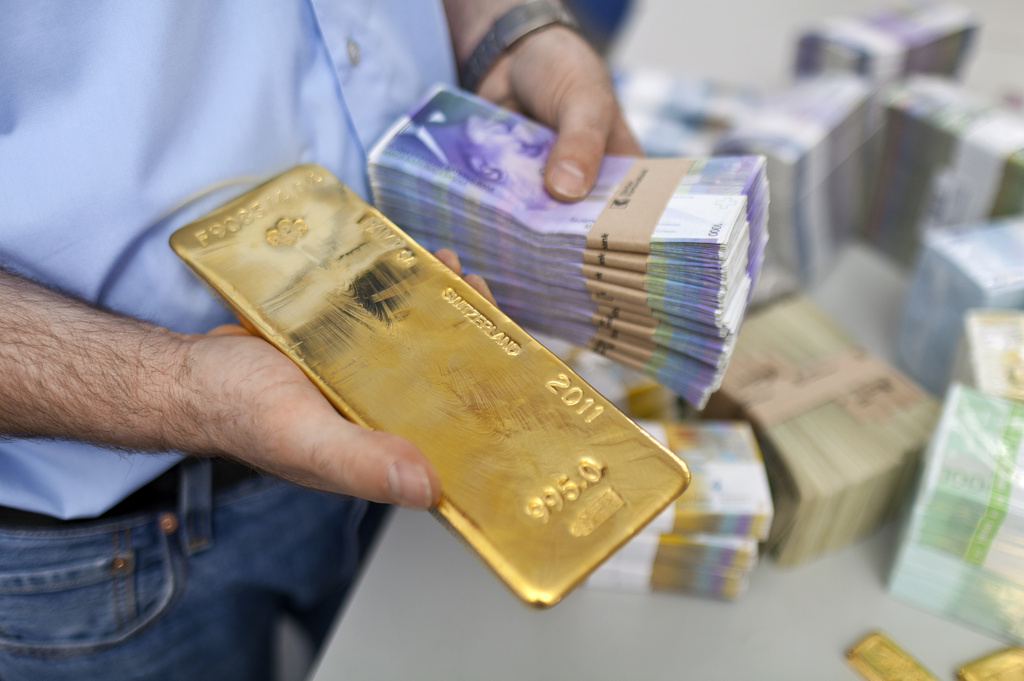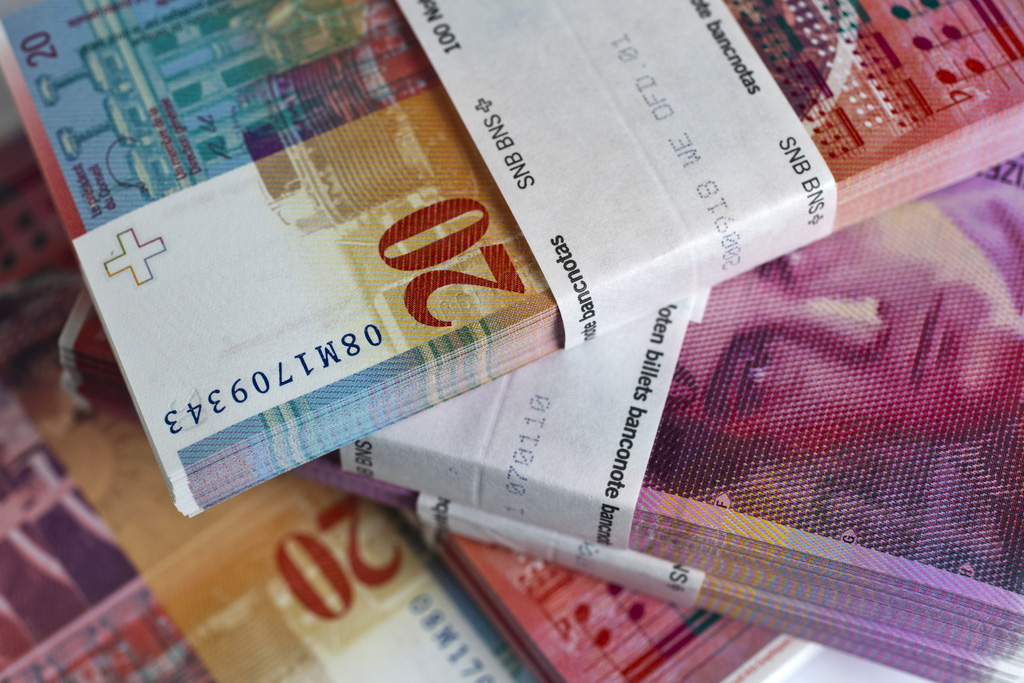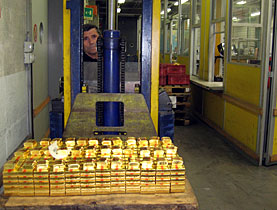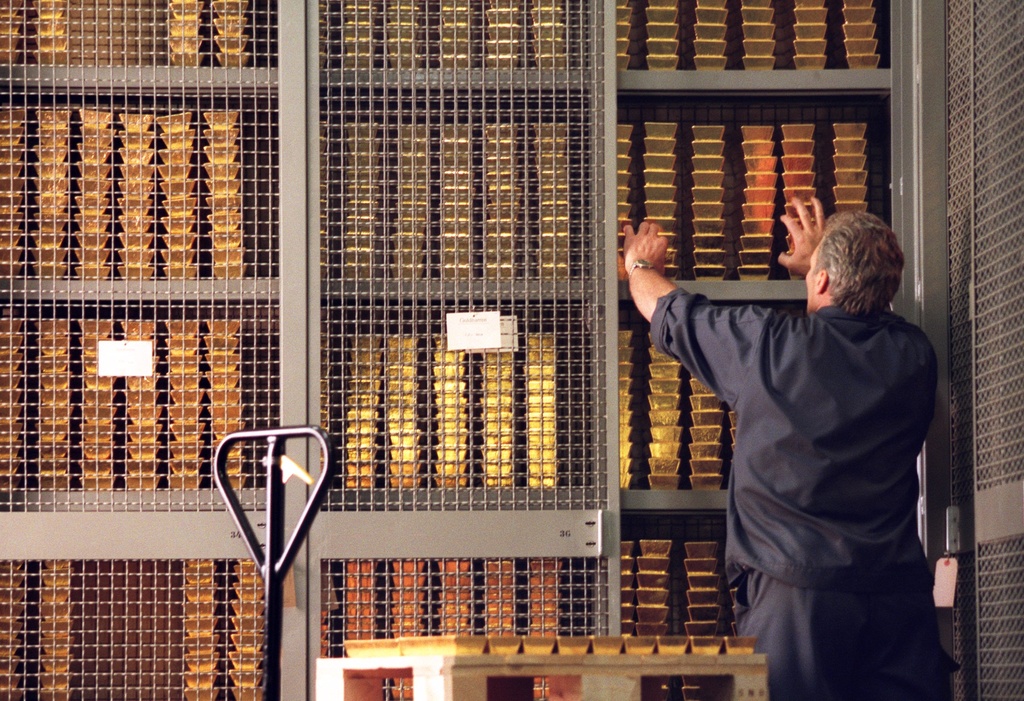“Everyone, everywhere, is buying gold”

Gold, a safe haven just like the Swiss franc, is breaking records and should continue on its upwards spiral, expert Frédéric Panizzutti tells swissinfo.ch.
Panizzutti, vice president at Geneva-based gold trading group MKS Finance, says gold’s advantage is that it can be exchanged all over the world and against all currencies.
But some are convinced that the gold bubble will burst. What is true is that gold has been hovering above the $1,800 (SFr1,421) per ounce (around 31 grams) threshold in recent days, reaching a record $1,900 per ounce for a time on Tuesday – and price of the metal has risen by almost a third since the beginning of the year.
swissinfo.ch: Why has gold become a safe investment?
Frédéric Panizzutti: All the securities that you can buy today – bonds, shares, currencies – have a credit risk. Gold is one of the only monetary securities which doesn’t have a debtor-creditor relation. The only risk is a price and fluctuation one.
Furthermore, gold can be exchanged pretty much all over the world quite easily and it can be exchanged against all types of currencies. This is what fundamentally makes it a safe investment.
swissinfo.ch: Gold is breaking records over price. Would you say there is a bubble?
F.P.: The issue today is not whether gold is worth its value or not. It is worth its value because people are buying it at that price. The fundamental problem is the lack of low-risk investments on the world markets.
The currencies – the dollar, euro and the stock markets are the problems. Bonds can also become a problem with the current and future lowering of credit ratings. Governments and individuals are therefore interested in gold to reduce risk and to diversify. They are not buying gold for gold’s sake, but because there isn’t anything else.
swissinfo.ch: What makes up the demand for gold?
F.P.: One can divide purchases into the groups: jewellery, speculation and savings, which can be either a security or a safe investment. The largest part is clearly safe investment, which in turn is largely make up of physical gold [coins, bullion].
This is the only way of avoiding credit risk. If you buy institutional gold [as, for example, an exchange-traded fund, futures or shares in a gold company] you will always have a risk.
swissinfo.ch: Who is buying gold?
F.P.: Everyone – and that’s what’s really changed over the past years in the market. Ten years ago, the dealers in gold were specialists, jewellers, traders and certain investors. Today gold has become much more popular. Everyone, everywhere, is buying gold.
swissinfo.ch: Where and how do you buy it?
F.P.: For physical gold the situation varies from one country to another. Big consumers like India, the Middle East or Asia are well organised and gaining access to gold is very easy. There are gold sellers at every street corner, who buy and sell.
In Europe it used to be more difficult to access physical gold. But the big demand these past three years has led to more sales outlets and to gold becoming more accessible, with little specialist stalls but also more and more banks selling physical gold at their counters. The system has adapted to demand.
swissinfo.ch: Since when has gold been undergoing this boom?
F.P.: At the end of the 1980s and in the 1990s the trend was to sell gold and certain central banks were liquidating their gold. The criteria for selling were mostly storage costs, lack of performance, financial stability and the view that gold was no longer a necessary reserve.
But the market panicked after the September 11, 2001 attacks and this issued in a change. People went back to gold and central banks slowly stopped selling it. The successive crises, including this last one, have reinforced this feeling that gold is a risk insurance against bear markets.
Added to this is the fact that today, as their balance sheets show, central banks are also buying gold… Many central banks have a large part of their reserves in dollars [currency, bonds, shares]. One of the easiest ways of reducing a small part of this dependency it to buy gold and sell dollars. There are other currencies, but the choice of currencies in which most of the market can have confidence is rather limited.
swissinfo.ch: Has gold already had its golden age?
F.P.: No, apart from, perhaps, the spectacular price movement in 1980 [period of inflation and geopolitical uncertainty]. Gold has undoubtedly had other prosperous times in history, but the prices were not recorded. But you can say that gold has reached its apogee today. And because the factors behind this are still there, unless there is a radical change in the situation in the euro zone and the American economy, we can presume that this high will continue.
Gold has been used in Switzerland since prehistoric times to make jewellery and ornaments. In Celtic and Roman times it was beaten to make currency. It was also used for bartering and hoarding money.
From the 15th century onwards, the urban middle classes wanted jewellery, art and domestic items which they ordered from local artisans. Jewellery and clock-making industries were established in Geneva in the 15th and 16th centuries and then in the Jura. They used a lot of gold.
In the 19th century coins were less popular due to bank notes. But gold became the reference for fixing the value of currencies in the international monetary system (gold standard). A similar system was used from 1946-1971.
(With input from Swiss historical dictionary)
(Translated from French by Isobel Leybold-Johnson)

In compliance with the JTI standards
More: SWI swissinfo.ch certified by the Journalism Trust Initiative




You can find an overview of ongoing debates with our journalists here. Please join us!
If you want to start a conversation about a topic raised in this article or want to report factual errors, email us at english@swissinfo.ch.